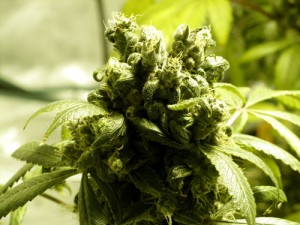Uncategorized
Second Committee Passes Marijuana Decrim in Connecticut
5/10/2011 –Medical use of marijuana is not the only prohibition policy that states are changing. Legislators in Connecticut continue their drive to make the adult possession of cannabis a civil offense. The General Assembly’s powerful Finance Committee passed a bill today to decriminalize adult marijuana possession. The measure passed the Judiciary Committee last month and now heads to the state Senate.
More from the Hartford Courant
On a vote of 31 to 20, the committee approved the measure after about 45 minutes of discussion. The bill would make the penalty for possession of a half-ounce of marijuana or less akin to receiving a speeding ticket. Those charged would be assessed fines instead of facing criminal penalties.
State Sen. Toni Boucher, a Republican from Wilton who is one of the leading critics of decriminalization, offered up several amendments, including one that would have toughen the penalties. But she failed to garner enough support to amend the bill.
The bill would set the penalty for a first offense of possession of less than an ounce of pot at no more than $90, less than the fines for littering, illegal fishing, having a defective muffler or damaging trees on state property, Boucher said. READ FULL ARTICLE
Massachusetts decriminalized adult marijuana possession by a voter referendum in 2008. Adults caught with one ounce (28 grams) of pot or less are now issued a ticket for $100 without a custodial arrest. Reports have shown the shift was successful for municipalities and the state
New York decriminalized marijuana in 1977 with legislation that includes provisions for a $250 fine and $100 court fee in cases where adults are caught with 25 grams or less. But in New York City police practices have seen pot possession arrests soar in recent years to over 50,000 annually, flouting state law.
Connecticut legislators passed a bill in 2009 to decriminalize marijuana only to have it vetoed by the previous governor Jodi Rell (R). But the issue has found a stronger path in 2011 with Governor Daniel Malloy sponsoring the bill and a group of legislators eager to see the concept finally become a law.
Decriminalizing cannabis is a pragmatic option for the state because it frees up a massive amount tax dollars needed for law enforcement.
‘Decrim’ is also a tangible and positive shift for cannabis consumers; no more arrest, bail, court, parole or probation. Even better, the civil citation means there is never a criminal record.
CONTACT LEGISLATORS IN CT HERE
Questions? [email protected]
 Chris Goldstein is a respected marijuana reform advocate. As a writer and radio broadcaster he has been covering cannabis news for over a decade. He volunteers with local groups to change prohibition laws including PhillyNORML and The Coalition for Medical Marijuana New Jersey.
Chris Goldstein is a respected marijuana reform advocate. As a writer and radio broadcaster he has been covering cannabis news for over a decade. He volunteers with local groups to change prohibition laws including PhillyNORML and The Coalition for Medical Marijuana New Jersey.
Connecticut Marijuana Decrim Now in Effect
 7/4/2011 – This week the residents of the Constitution State are gaining back some of the liberty that was created 235 years ago. Connecticut Gov. Dannel P. Malloy signed a law that removes criminal penalties for possession of up to 1/2 ounce of marijuana. Adults caught with 14 grams of pot or less are now given a $150 fine on the first occasion and $200-$500 for additional offenses. Those between the ages of 18-21 will need to appear in court and will also have their drivers’ license suspended for 60 days.
7/4/2011 – This week the residents of the Constitution State are gaining back some of the liberty that was created 235 years ago. Connecticut Gov. Dannel P. Malloy signed a law that removes criminal penalties for possession of up to 1/2 ounce of marijuana. Adults caught with 14 grams of pot or less are now given a $150 fine on the first occasion and $200-$500 for additional offenses. Those between the ages of 18-21 will need to appear in court and will also have their drivers’ license suspended for 60 days.
When the law passed a final vote in the CT House on June 7th Governor Malloy said, “ Let me make it clear – we are not legalizing the use of marijuana. In modifying this law, we are recognizing that the punishment should fit the crime, and acknowledging the effects of its application. There is no question that the state’s criminal justice resources could be more effectively utilized for convicting, incarcerating and supervising violent and more serious offenders.”
Governor Malloy, a Democrat, is a former prosecutor and crafted the decriminalization bill. His Republican predecessor, Jodi Rell, vetoed a similar bill that passed both houses in 2009.
A bill modeled after the new CT law was recently introduced in New Jersey.
Related – Connecticut House Passes Final Vote on Marijuana Decrim Bill
Chris Goldstein is a respected marijuana reform advocate. As a writer and radio broadcaster he has been covering cannabis news for over a decade. Questions? [email protected]
Burn on the 4th of July: Marijuana, the Department of Homeland Security and the Liberty Bell
PHILADELPHIA by Chris Goldstein 7/4/2013
We are celebrating an incredible revolution of ideas this week, one that has a living pulse today.
The Philadelphia of 1776 housed the women and men who crafted a new future for freedom. In 2013 it is where the United States federal government is displaying the tremendous cost and energy it will spend to arrest Americans simply for smoking marijuana.
On Sunday June 30th scores of Department of Homeland Security (DHS) agents and National Park Service (NPS) Rangers along with Philadelphia Police (PPD) participated in a coordinated disruption of the monthly “Smoke Down Prohibition” protest in front of the Liberty Bell.
The six-month old event is organized (loosely) by comedy crew The Panic Hour and reform group PhillyNORML.
At 4:20PM many in the crowd lit cannabis joints in a symbolic protest against federal laws…as they have each month (in the same spot) since December 2012.
This time more than eighty members of law enforcement (all with guns, some in riot gear) were sent into the group of about 100 peaceful cannabis consumers who had just respectfully marched all the way from City Hall (in the rain) without incident.
But when protesters arrived at The People’s Plaza over a dozen people were roughly dragged to the ground by police, agents and rangers. Eight people were issued citations. I was one of those cited.
Video – http://youtu.be/HJisWNBFaz0 Photo set – http://tinyurl.com/osk88l3
The strategies and tactics employed by the multiple agencies are a real window into the marijuana policy problem overall. More than 750,000 Americans will be treated the same way this year by police just for a small amount of pot; but most of the actual arrests won’t be so well documented.
President Obama, top-level politicians along with agency heads at the DEA, ONDCP and others claim that federal laws against possession of a few grams of weed isn’t on their radar. But that is a lie. We can see just how the federal government feels about marijuana legalization in their militarized response to a group of Americans openly carrying a little bit of cannabis.
Drug War Tour
Sunday’s event was much more positive than the 15 minutes of intense police action against us.
Around 2:30PM a dedicated group of marijuana reform activists gathered under drenching but not uncomfortable summer rain in Love Park. Among the tourists snapping pictures we handed out leafy signs and umbrellas, staying upbeat with the comedy of The Panic Hour and a talk from anarchist writer Larkin Rose…both are actually best enjoyed standing in the rain anyway…like a Nine Inch Nails concert.
The Drug War Tour of Philly was organized by Mike Whiter, a US Marine combat veteran who wants Pennsylvania to legalize medical marijuana.
Participants included some seasoned activists like libertarian Adam Kokesh and Capt. Ray “Occupy” Lewis, the retired Philly Police Captain arrested at Occupy Wall Street. There were people of all ages and nearly every ethnicity, including a man in a wheelchair and a couple with a baby. We made for an excellent representative cross-section of our country.
Many were familiar faces to me; these are the people who have the courage to put forth a real effort for legalization. Everyone was there to walk twelve blocks in steady rain to ultimately enter a cage filled with federal agents for a joint smoking session.
The resolve and honest good nature of every single person involved remains an inspiration. Marching with them is always a privilege.
At 3:15PM we left Love Park with local comic Steve Miller-Miller on the microphone “1-2-3-4 End The Lunatic Drug War!”
The amplifier was on the back on an old Army pickup truck (driven by an affable Libertarian survivalist), fittingly at the lead of the parade.
The event had a permit and an official police escort along with a PPD Civil Affairs unit. About ten Philly cops on bikes and in SUVs were focused on politely closing off intersections for our street march.
Our first stop was the West side of City Hall where I gave a talk directed toward Mayor Michael Nutter.
“There are more than 4,000 arrests each year in Philadelphia for marijuana and more than 80% of those are black men and women – but Mayor Nutter could de-prioritize marijuana possession.”
“Marijuana reform doesn’t have to start in Washington DC, it doesn’t have to start in Harrisburg it can start right here at City Hall.”
A recent resolution passed by the National Conference of Mayors pleaded with federal authorities to allow cities to direct their own criminal cannabis policies – reducing penalties. But a recommendation by the ACLU in their report highlighting the racial disparity to pot enforcement could be enacted by the Mayor at any time: de-prioritization; this directs police and prosecutors to take on serious crimes instead of busting people for weed.
Chants of “END THE DRUG WAR!” and “What do we want? LEGAL WEED! When do we want it? NOW!” echoed from the faces of the Gotham-style structure of Philly’s City Hall as we made our way up Market Street.
We had one more stop on our journey that turned into a powerful visit.
At 7th Street we made a left went one block to land in front of the Federal Detention Center. This is where comedian NA Poe and broadcaster Adam Kokesh were held on felony charges after DHS, Park Rangers and Philly Police arrested them at the May 18, 2013 “Smoke Down Prohibition” rally. (Video – http://www.liveleak.com/view?i=594_1369103091 )
Kokesh and Poe were held in the same cell inside for five days and they both spoke in front of the FDC,
“A lot of people are locked up in there because of the Drug War,” said Poe, but then there were several, very welcome interruptions to their speeches.
At first I thought some heavy rain might be falling nearby or a low, persistent thunder. But it was the prisoners inside the FDC banging on the windows in response to the protest on the street.
This was a profound and unique moment. We raised our voices with the prisoners of prohibition; the communication of the message was acknowledged by both sides. I saw tears mixing with the rain as cheers mixed with banging; a choir of voices, unified; all for legal marijuana.
6/30 FDC Video – http://youtu.be/HGtTH4_D8hE?t=5m53s
Keeping on schedule to reach the Liberty Bell by 4:20 we moved on with the march. In the 8tt Street underpass we took a break from the rain and listened to Ray Lewis give his view of drug laws.
The retired Philadelphia Police Captain used to respond to a lot of domestic violence calls, none of them he attributed to marijuana – but a lot of them seemed fueled by alcohol. The former cop joins a growing number of his colleagues who are taking the time to end a voice for change.
We continued our lively parade, a visible expression of a majority of Americans (likely even cops) in favor of legalization. We were energized by the brief respite and chanting for an end to cannabis prohibition.
In the distance we could see the massive police presence waiting for us.
Slowing leading the green camo truck up the center of a wet, reflective Market Street under cloudy skies to the small army of agents in front of Independence Hall was surreal. All of the protesters were calm.
Freedom cages and riot rangers
The area preserved for First Amendment activity at 5th and Market Street was ringed by metal barricade fencing when we arrived at 4:12. It is usually left open. We called it a “freedom cage” and walked inside.
Several dozen (visible) Department of Homeland Security agents deployed to our pot demonstration were in full black tactical gear with bullet-proof vests festooned (presumably) with extra magazines and other lethal equipment.
The several dozen Philly Police were all wearing baseball batting gloves (really) along with their guns and handcuffs.
National Park Service Rangers wore bullet-proof vests and were all carrying guns but there were also some special Rangers literally in GREEN riot gear with batons and helmets.
Oddly the US Fish and Wildlife Service also had another officer (also with a gun) who actually laid hands on a protester.
A processing tent was erected off to the side and staffed by more DHS, Rangers, Police and even the US Attorney’s Office.
Again this entire operation was staged because a group of Americans announced that we would smoke a joint at 4:20PM. (It probably even had a snappy code name…)
The federal response to this peaceful protest was way out of proportion. 
I helped to lead the 4:20PM countdown at the first “Smoke Down Prohibition” in December and again at the largest gathering (so far) on April 20, 2013. There were only a few regular Rangers off in the far distance on those occasions. There was no metal fencing. One Ranger was close-by on 4/20/13 smiling and holding a video camera; not (visibly) armed with a gun.
A tolerant pragmatism on both sides and respectful détente seemed to be in effect among the local protesters and Rangers. So the disproportionate new tactics rolled out in May and June are clearly coming somewhere from the top -down.
Members of our group, including yours truly, were ready to take part in a civil disobedience action (openly smoking a marijuana joint) and to receive a citation. Smoking pot in public is something a reasonable person (even law enforcement) can agree is a minor issue, especially in the context of civil disobedience.
But Homeland Security, Park Rangers and Philly Police did not come with books of tickets, pepper spray and zip-ties; they appeared with loaded guns and metal handcuffs.
The world can now see the truth of US cannabis prohibition policy each month in Philadelphia. All of our federal AND local law enforcement resources are being aggressively deployed just to bust people with a joint.
Getting Cited
Mike Whiter and I stood next to each other sharing a bullhorn with Ed “NJWeedman” Forchion at 4:19PM inside the federal freedom cage. Mike was wearing an olive green t-shirt with “Marines” emblazoned across it; I was in a pinstripe Ralph Lauren suit.
The rain stopped and the sun had just broken through the clouds over Independence Hall for the first time that day. The crowd huddled around Mike and me, not by design but by instinct.
We counted down from 20 seconds, the crowd got tighter but there was a small open circle right in front of me. People were already being pulled away from the edges and the atmosphere grew tense. Still I knew everyone was non-violent and sensed that everyone was prepared for the action.
As I got down from 10 seconds I put a joint in my mouth and when we reached “4:20” several lighters were held aloft and I lit it. Immediately squads of law enforcement weaved throughout the crowd. The young man on my left was pulled roughly away. I kept smoking the joint and told everyone to remain calm though the bullhorn.
I saw a tall Black man with long dreads holding only a video camera getting dragged to the ground by Rangers and Philly Police. Civil Affairs officers were rushing through the crowd as well. They seemed to be observing and even directing some arrests while ignoring others.
Those assembled made a powerful and poignant protest raising awareness for marijuana legalization. As their friends were roughly handled the Smoke Down participants shouted “No Victim; No Crime!” and many kept smoking.
I kept on toking my skinny but fragrant joint, catching the toughest buzz of my life. Mike got on the bullhorn pointing out that we were openly smoking marijuana…and that it was “really good” cannabis. Finally a local National Park Service Ranger approached me.
Since 2010 I’ve been peacefully protesting at 5th&Market for a variety of good causes. This particular Ranger and I had cordially interacted before. He wore a bark-brown and dark green uniform and reached up with a black leather glove to take the joint asking, “Is that marijuana?”
 I smiled and said, “Yes, of course!” easing the joint from my right hand into his fingers as he seized my left elbow. He led me on a half-turn and we calmly walked over to the processing tent; a Philadelphia Police officer was at my right elbow and a Homeland Security agent followed behind.
I smiled and said, “Yes, of course!” easing the joint from my right hand into his fingers as he seized my left elbow. He led me on a half-turn and we calmly walked over to the processing tent; a Philadelphia Police officer was at my right elbow and a Homeland Security agent followed behind.
Two separate Philly cops asked that I be handcuffed, but the Ranger replied that it was not necessary to both.
Mike continued smoking his joint for a few more puffs but was seized just after me in the same calm manner. Our interactions did not appear to be the norm. Many of those seized were needlessly manhandled and most were immediately released with no citations and no apology.
Over at the processing tent a man who had been carried over in handcuffs was yelling in pain saying his shoulder hurt from the position. His cuffs were eventually removed and he was sent away on an ambulance. Some of those detained were cited for “interference” not marijuana possession because they were seized while smoking tobacco cigarettes. Those cases could end up in court.
The Ranger briefly patted me down and asked for identification. I gave over my driver’s license and silently waited my turn.
I could see a Deputy US Attorney along with other higher-ups. Suddenly the Chief Ranger at Independence Mall National Historic Park, Patrick Suddath, came up and asked for me by name, then remarked that I was “overdressed.”
Suddath and I have interacted (cordially) before; during the local Occupy Wall Street encampment I traded my suit for cold weather gear.
“Liberty Bell tie; it’s for media appearances here,” I said. 
The tie was a gift from fellow cannabis activist Colleen Begley; she bought it at the Independence Visitor Center gift shop. I hope Suddath noticed. He was quickly pulled away in another conversation.
Twenty minutes later the Rangers had filled out my citation for possession of a controlled substance and put the remaining ¼ of a joint into a plastic evidence bag. My name was then run for outstanding warrants and a Ranger took a digital photograph of me with the citation.
My interaction was boring, civil and by-the-book. But like all pot prohibition enforcement, they did not treat everyone the same way.
Video – http://youtu.be/HJisWNBFaz0 Photo set – http://tinyurl.com/osk88l3
Rolling forward
Plans are already in the works for the July edition of “Smoke Down Prohibition.” Fundraising will take place to cover some of the citation fines from June and remain active for future events. Organizers and participants are determined to grow the action, swelling the number of cannabis consumers.
It is bizarre to be targeted by federal law enforcement in this fashion. Philadelphia Police Civil Affairs officers made a point tell us they had been briefed about the protest earlier in the week by federal agencies. This was likely a mild intimidation tactic but also an insight into the intense planning that went into the interruption of our protest.
Although fully armed and with just under one hundred cops, agents and rangers (don’t forget US Fish and Wildlife) law enforcement did not wait until 4:20PM but immediately encroached upon the protest – pulling people away before any joints were lit.
They interrupted our ability to peacefully gather and seek redress of our government. All of the officers who pledge to protect the US Constitution stood next to a monument to the First Amendment and willfully ignored it. Ultimately this is the length to which the federal government has always gone to defend and enforce this harmful policy – but now it is out in the open, symbolically and tangibly, for all to see.to
The heavily armed; grandly choreographed efforts against this awareness campaign for legal marijuana should be disturbing to all Americans.
Perhaps this is a hint into the Department of Homeland Security’s future tactics against cannabis consumers in Washington and Colorado. Or the reality could be that federal agencies take this approach to disrupt many groups simply for organizing around a political issue.
That is why I plan to continue participating in these monthly actions. We are not afraid to embrace our freedom.
My Green Pledge
The ability for The People to use the cannabis plant as we wish is a Civil Right and a Natural Right.
When the government insists on pursuing destructive forms against its own citizens it is our responsibility to dig deep and empower the foundations of our principals as a nation.
We the People hold unquestionable Civil and Human Rights to alter our United States government and organize it for our Safety and Happiness.
For seventy-five years we have endured the Prohibition of Cannabis at tremendous cost to our Lives and Liberties. We experience the current enforcement of these unreasonable laws as a modern tyranny.
We have diligently employed every legal and legislative avenue for decades to combat this injustice only to have all tiers of Government alter their form to maintain a policy that makes us suffer – by the millions – each year.
We The People of the United States of America are declaring our Right to utilize Cannabis.
Many of us will publicly exercise our liberties each month in front of Independence Hall, peacefully upholding the best of all American traditions in the face of armed federal troopers, until prohibition comes to an end.
One day I hope that same National Park Service Ranger can take a joint out of my hand not to cite me, but to share.
Connecticut: Public backs marijuana reforms
The Drug War Chronicle reported yesterday on some striking new polling in Connecticut. Voters are heavily favoring a variety of marijuana reforms and legislation is currently active, giving the poll results even more importance.
DRCNet – A Quinnipiac University poll released Thursday showed strong support for medical marijuana and marijuana decriminalization among Connecticut voters. The poll comes at state legislators consider medical marijuana and decriminalization bills.
The plant is getting popular in Connecticut.
Medical marijuana had the support of a whopping 79% of respondents. Support was above 70% in every demographic, with even 72% of Republicans favoring it.
“There is a near consensus on the medical marijuana law with about eight in 10 voters supporting it,” said Quinnipiac poll director Dr. Douglas Schwartz. “It’s rare to see such a level of support for any issue.” Read full
Connecticut residents can use the NORML CAPWIZ tool to contact your legislators: http://capwiz.com/norml2/issues
Cannabinoids, Breast Milk, and Development
Hospitals routinely screen new born babies for drugs. If a mother uses a drug, such as Cannabis then the baby may drink the plants ingredients or metabolites in breast milk, thus baby urine or feces can provide evidence of the mother’s drug use and allow the state to take control of the child. Cannabis should be an easy drug to detect, THC can stay in the body for an extended period of time, unlike cocaine or speed or alcohol. However, detecting THC in babies just got a little bit trickier.
A study published in the Journal of Clinical Biochemistry demonstrated that baby urine containing a tiny amount of baby soap would give a positive result on a drug test for THC, the active ingredient in the plant. A positive test for your baby can result in child abuse allegations and the involvement of social services. Hence, the authors suggest that laboratories, which conduct drug tests for THC should be aware of these potential sources of error that exist in the real world.
So, what do you do when your baby tests positive for marijuana? We know what the consequences of the failing the tests are…but what does the science say about pregnancy, babies, and breast milk?
The science demonstrates that cannabinoid receptor activation (i.e. CB1 and CB2 receptors) is a natural and important component for proper development. Mammals, including humans, produce endocannabinoids, which are THC-like compounds. These THC-like compounds include anandamide and 2-AG. Anandamide and 2-AG activate the same receptors as THC, and are found in bovine and human breast milk. Adding THC to the mix of endocannabinoids in breast milk may lead to changes in development but scientists just aren’t sure if any of these differences in animals translate into long term changes in human development.
The developmental effects of THC exposure remain unclear, but the blocking of cannabinoid receptor activation during early development is considered to have “catastrophic” effects. Studies by Ester Fride and colleagues have demonstrated the importance of having an endocannabinoid system that is functioning properly. For example, one of the studies by Fride et al. showed that the administration of SR141716A, a drug which prevents CB1 receptor activation, will kill 50% of baby mice within 2 days, due to a disruption of feeding behavior. In another experiment from the same study, THC was able to reverse the disruption in feeding behavior induced by SR141716A.
Additional studies in mice and rats have shown that prenatal or postnatal exposure to cannabis or cannabinoids may lead to subtle changes in breast milk and development. However, many of these animal studies do not have much, if any human data to corroborate them. Always keep in mind that drugs abuse studies are difficult to interpret, as most subjects use multiple drugs and socioeconomic status seems to play the biggest role-money, health care, and your parents level of education can have a bigger impact on healthy development than Cannabis. Interestingly, a study found that among poor mothers living in the northeast, marijuana was the least common drug used and the health of a newborn seem to be most affected by polydrug use, including: alcohol, tobacco, and cocaine.
Many studies have looked at the effect of Cannabis use during pregnancy and the results suggest that there are not clear consequences. A review article published by Dr. Ethan Russo walks the reader through the human studies on pregnancy, here are of some of the examples from his article:
- “A variety of studies have demonstrated transient effects of cannabis on endocrine hormone levels, but no consistent effects seem to occur in chronic settings (Russo et al.2002).”
- “Studies are hampered by the obvious fact that laboratory animals are not human in their responses. Estrous cycles and behaviors in animals are not always analogous to menstrual cycles and other physiological effects in women.”
- “In a study of 171 women, 25% of pregnancies ended spontaneously within 6 weeks of the last menses. Cannabis exposure seemed to have no observable effect in these cases (Wilcox, Weinberg, and Baird 1990).”
- “In 1987, the Ottawa group compared effects of cannabis, tobacco, alcohol and caffeine during gestation (Fried et al. 1987). Whereas tobacco negatively affected neonatal birth weight and head circumference, and alcohol was associated with lower birth weight and length, no effects on any growth parameters were ascribable to maternal cannabis usage.”
- “In a subsequent study (Witter and Niebyl 1990), examination of 8350 birth records revealed that 417 mothers (5%) claimed cannabis-only usage in pregnancy, but no association was noted with prematurity or congenital anomalies. The authors suggested that previously ascribed links to cannabis were likely confounded by concomitant alcohol and tobacco abuse.”
- “A group in Boston noted a decrease in birth weight of 79 g in infants born to 331 of 1226 surveyed mothers with positive using drug screen for cannabis (p =0.04) (Parker and Zuckerman 1999), but no changes in gestation, head circumference or congenital abnormalities were noted.”
- “The largest study of the issue to date evaluated 12,424 pregnancies (Linn et al.1983). Although low birth weight, shortened gestation and malformations seemed to be associated with maternal cannabis usage, when logistic regression analysis was employed to control for other demographic and exposure factors, this association fell out of statistical significance.”
- “Dreher has extensively examined prenatal cannabis usage in Jamaica (Dreher 1997; Dreher, Nugent, and Hudgins 1994), wherein the population observations were not compounded by concomitant alcohol, tobacco, or polydrug abuse. This study is unique in that regard, no less due to the heavy intake of cannabis (“ganja”), often daily, in this cohort of Rastafarian women. No differences were seen between groups of cannabis-using and non-cannabis-using mothers in the weight, length, gestational age or Apgar scores of their infants (Dreher, Nugent, and Hudgins 1994). Deleterious effects on progeny of cannabis smokers were not apparent; in fact, developmental precocity was observed in some measures in infants born to women who smoked ganja daily.”
The research on this subject doesn’t end there. Researchers have administered cannabinoids to children; cannabinoids may have a role in pediatric medicine as young children do not appear to get “high” from cannabinoids such as THC. Below Ester Fride discussed two of the clinical trials on cannabinoids and children:
“The gradual postnatal increase of anandamide and its CB1 receptors (see Video of Pre- and postnatal development of the endocannabinoid CB receptor system below) is accompanied by a gradual maturing response to the psychoactive potential of D9-tetrahydrocannabinol and anandamide in postnatal mice between birth and weaning (Fride and Mechoulam, 1996b).
This observation has important implications for cannabinoid therapy in children, since psychoactive side effects may be expected to be minor when treated with cannabinoids at a young age. Indeed, very high doses of D8-tetrahydrocannabinol (approximately 0.64 mg/kg/treatment) were given to children between the ages 3 and 13 years who were undergoing chemotherapy for the treatment of various hematologic cancers, over long periods of time (up to 114 treatments, based on 4 treatments/24h during the days of chemotherapy). The anti-emetic effects were impressive, whereas the side effects were minimal (Abrahamov and Mechoulam, 1995). In a case report study (Lorenz, 2003), eight children (ages 3–14 years) with a variety of severe neurological diseases were treated with D9-tetrahydrocannabinol (0.04–0.12 mg/kg/day). Significant improvements in behavioralparameters including reduced spasticity, improved dystonia, increased interest in the surroundings and antiepileptic activity were reported without notable adverse effects.
It is not clear, how, in the first study, the anti-emetic effects were achieved (presumably via the area postrema) and in the second, positive neurological benefit was derived in the absence of adverse psychological effects.
Is it possible that a differential CB1 receptor distribution appears during development, or that differential maturation of brain pathways is responsible for the clinical success? Clearly, further animal experiments and clinical investigations of cannabinoid treatment in the developing organism are warranted.”
The scientific evidence discussed here suggests that Cannabis may be used during pregnancy with little risk or consequence to your health or the baby’s health (One parenting website suggested that the biggest risk to a child is the parents state of mind after use).
Regarding Cannabis use, the most severe consequences to the mother and her baby appear to result from interactions with law enforcement, social services, and baby soap.
VIDEO: Pre- and Postnatal Development of the Endocannabinoid System by Ester Fride Ph.D

Jahan Marcu is currently investigating the pharmacology of cannabinoid receptors. He was working at the California Pacific Medical Center Research Institute when exciting discoveries were made showing enhanced anti-cancer effects with THC and CBD from the Cannabis plant. The findings were published in the Journal of Molecular Cancer Therapeutics. In 2009 he received the Billy Martin Award from the International Cannabinoid Research Society (ICRS). Jahan is currently the vice-chair the Medical and Scientific Advisory Board at Americans for Safe Access (ASA). Questions? Contact [email protected]
DISCLAIMER: The views and opinions expressed are those of the author and do not necessarily represent any University, business or affiliates. While the information provided in this blog is from published scientific studies it is not intended to diagnose or treat any disease.
Connecticut Senate Passes Half-Ounce Marijuana Decrim Bill
6/5/2011 – The Connecticut Senate passed Governor Dan Malloy’s decriminalization bill on June 4th. Time is running short for the legislative session and the bill is getting one last push. Recent amendments lowered the amount of cannabis adults can posses from one ounce to half an ounce. Offenders would pay a $150 fine the first time and $200-$500 on further occasions. Those under the age of 21 would also have their driver’s license suspended for 60 days.
All of the Republicans in the Senate voted against the bill. The legislation must still pass a floor vote in the House.
More from the CT Mirror:
Backers of the bill said it would allow law enforcement to shift priorities to more important matters.
“This would free up court time, probation officer time, police time, to focus on the much more serious stuff,” said Malloy’s chief criminal justice adviser, Michael Lawlor.
They also argue that the lower penalties for small amounts of marijuana-roughly 30 joints by their estimate-will still deter use as much the current penalties do.
Sen. Eric D. Coleman, D-Bloomfield and co-chairman of the legislature’s Judiciary Committee, said the current penalties don’t deter use. What they do is saddle people caught with a small amounts of marijuana with a criminal record that harms their job, education and military opportunities.
Governor Malloy, a Democrat, is a former prosecutor and crafted the decriminalization bill. His Republican predecessor, Jodi Rell, vetoed a similar bill that passed both houses in 2009. There are thirteen US States that treat small amounts of marijuana as a civil offense.
 Chris Goldstein is a respected marijuana reform advocate. As a writer and radio broadcaster he has been covering cannabis news for over a decade. Questions? [email protected]
Chris Goldstein is a respected marijuana reform advocate. As a writer and radio broadcaster he has been covering cannabis news for over a decade. Questions? [email protected]
Cannabis and Karaoke – Perfect Together

"It's a reason to get out of the house so you're not just a hermit in the dark with pain pills." – Teresa Sheffer
This relaxed Portland cafe provides the perfect setting for medical marijuana patients to socialize and sing everything from Sinatra to Sublime.
PORTLAND, Ore. – Lights dim. A white-haired man of perhaps 50 approaches the stage. He’s wearing a blue suit jacket, open-neck shirt, black leather loafers and sunglasses, indoors, at night. He’s got the Sinatra panache down.
Then, the voice, a rich baritone, sweeps over the audience of a couple dozen glazed and grinning pot smokers.
“Day and night, night and daaaaay,” he croons the Sinatra standard into a mic in his right hand. “Only you beneath the moon or under the sun, whether near to me or far, it’s no matter darling where you are.
“Dum dum, dum dum de-doo-dee-dum.”
The audience yelps and coos in appreciation.
This is karaoke night at Portland’s Cannabis Cafe, a combination of the bar from Cheers and a street-side pot palace in Amsterdam. It is perfectly legal in this smoky room for medical marijuana patients to burn, eat, rub, filter and roll marijuana.
There are cancer patients, AIDS patients and sufferers of smashed vertebrae and pinched nerves. There are also those who find refuge under Oregon’s “severe pain” allowance – tell a marijuana-friendly doctor you’ve got pain, and you’ve pretty much got weed.
Since the medical marijuana law’s passage in 1998, nearly 40,000 patients have gotten access.
The pot in the cafe is brought in by patients or donated by growers. Money doesn’t change hands unless it’s to buy a sandwich or coffee. The price of admission: a $20 monthly charge and a $5 door fee.
The cafe has farmer’s markets of donated weed-laden goodies, a weekly comedy show and even an employees’ night. On Thursdays, it’s karaoke. An ill-lit stage catches an occasional cloud of puffy white smoke blown from a pipe or a bong or a vaporizer.
The Sinatra crooner, unlike many tonight, has got the goods.
The rest of the evening will be spent alternatively cringing and clapping at the cluster of medical marijuana users who make it their business to be at the cafe when karaoke kicks off at 7 p.m.
From table to table, the stories pour out of them. Most declined to provide their names.
Teresa Sheffer was hit by a train while driving in Alto, Mich. It broke every major bone on her right side and left her with damage to her spine. Now her pain sometimes gets so severe it forces her to huddle in her house, alone.
But sitting six paces from the stage with a pipe in front of her and a thick pinch of locally grown pot packed into her friend’s bong, she’s relaxed. If there is a point to the Cannabis Cafe, it is to give people who smoke pot a place to do it together.
“It’s a family here,” Sheffer said. “You see other people with the same problems, but it’s not a hospital. It’s a reason to get out of the house so you’re not just a hermit in the dark with pain pills.”
Read more by Beth Mann on Karaoke as Cheap Therapy
Considering Decriminalization: NJ Marijuana Arrests
 6/20/2011 – NJ Assemblyman Reed Gusciora is expected to introduce a bill this week to decriminalize the possession of up to 14 grams of marijuana by adults. A look at the Uniform Crime Report from the NJ State Police reveals some striking statistics for marijuana arrests. The 2009 report contains the most recent published data available, although preliminary data on 2010 points to an increase for cannabis violations.
6/20/2011 – NJ Assemblyman Reed Gusciora is expected to introduce a bill this week to decriminalize the possession of up to 14 grams of marijuana by adults. A look at the Uniform Crime Report from the NJ State Police reveals some striking statistics for marijuana arrests. The 2009 report contains the most recent published data available, although preliminary data on 2010 points to an increase for cannabis violations.
In 2009 the Garden State arrested 26, 254 people for marijuana. Eight-five percent of the arrests (22, 439) were for possession of less than 50 grams. Currently, adults caught with anything from a joint to two-ounces are treated the same way; with a custodial arrest and a criminal prosecution.
In 2009 New Jersey performed more arrests for marijuana than for all other drugs combined. Fifty-six percent of all drug possession arrests were for marijuana.
The same year saw 3,815 arrests for Sale/Manufacture of marijuana. This is compared to 8,128 arrests for sale/manufacture of cocaine or opium products in 2009. Yet fewer NJ residents were arrested in possession of cocaine or opiates (14,609) than for marijuana (22,439).
The conclusion that could be drawn that enforcement of cannabis prohibition laws in New Jersey is focused on the individual user rather than those selling. This is different compared to other drugs.
Some additional information from the NJ UCR
– Forty-two percent of persons arrested for drug abuse violations were under the age of 21.
– Males accounted for 81 percent and females 19 percent of the arrests.
– Fifty-four percent of total persons arrested in 2009 were white, 45 percent were black and 1 percent were other races.
– The Hispanic ethnic origin accounted for 14 percent of the arrests and 86 were non-Hispanic.
Fourteen US states allow a civil citation to be issued at the point of encounter with police. A nominal fine is levied at a later time and the offense is treated similar to a traffic violation for speeding. The decrim states on the east coast include: Maine, New York, Massachusetts and Connecticut.
Chris Goldstein is a respected marijuana reform advocate. As a writer and radio broadcaster he has been covering cannabis news for over a decade. Questions? [email protected]
Cannabis and PTSD Clinical Trials Announced
The International Association for Cannabinoid Medicine published a bulletin highlighting the preliminary results from an observational clinical trial studying the effects of Cannabis on post traumatic stress disorder (PTSD).
“According to an observational study by scientists of MaReNa Diagnostic and Consulting Center in Bat-Yam, Israel, presented at the Cannabinoid Conference 2011 in Bonn, Germany, the use of cannabis may improve symptoms of posttraumatic stress disorder. As a part of their routine consulting work, they assessed the mental condition of 79 adult PTSD patients, who applied to the Ministry of Health in order to obtain a license for the medical use of cannabis. Only part of them (about 50 per cent) got cannabis licenses and constitutes the study group. They were followed for a period of about two years.”
One of the oldest known medical uses for Cannabis is in the treatment of psychiatric disorders, as described in the ancient Ayurvedic texts from India (Russo 2005). This ancient medicinal claim is proving itself true through recent scientific studies. Scientists studying fear conditioning in animals discovered that the CB1 receptor is necessary for the extinction of adverse memories (Marsciano 2002). Researchers studied mice that are genetically bred without the CB1 receptors. These mice without CB1 receptors have an impaired ability to extinguish fear. Scientists have also tried using the drug Rimonbandt, which blocks the CB1 receptor and seen similar results (Lutz 2007).
The CB1 receptor is the most abundant protein in the human protein, and anyone who has activated this receptor with THC can tell you about its effect on memory. This memory impairment associated with Cannabis can be harnessed for medical uses.
The CB1 receptor is part of the endocannabinoid system (ECS). The ECS is a natural part of our body and among many things it controls things such as eating, sleeping relaxing, and memory. Conceptually, by adding THC to the brain, the ECS is turned on and begins to do its work. THC from the Cannabis plant and our body’s endocannabinoids may control the extinction of adverse memories by acting through the CB1 receptor. Adverse memories underlie or cause many anxiety disorders such as PTSD. You don’t have to be a veteran to receive relief from Cannabis for a psychiatric disorder. The extinction of adverse memories through the CB1 receptor is emerging as a universal mechanism in the brain.
Despite a vast amount of scientific information on the effect of cannabinoids on memory, the first clinical trial on Cannabis and PTSD is yet to be completed. This clinical trial is an obvious next step that will test the effect of CB1 receptor stimulation on adapting to fear. This is something scientists have not been successful at studying; researchers have only been approved to study the effect of CB1 receptors on anxiety disorders indirectly through genetically altered mice and by blocking the receptor.
Cannabis and cannabinoids may offer a benefit in the treatment of anxiety disorders, such as phobias (fears) or PTSD, and the pain that is often associated with them. The implications of the current scientific data suggest that Cannabis and cannabinoids can treat a wide range of anxiety orders. If you are feeling nervous about the speculation of using Cannabis to treat anxiety disorders, just remember the title from Nature magazine’s 2002 article, “Never Fear, Cannabinoids are Here (Sah, 2002).”
Bibliography
Lutz, B. (2007). The Endocannabinoid System and Extinction Learning. Molecuar Neurobiology, 36:92-101.
Marsciano, G. (2002). The Endogenous Cannabioid System Controls the Extinction of Adverse Memories. Nature, 530-534.
Russo, E. (2005). Cannabis in Inida: ancient lore and modern medicine. In R. Mechoulam, Cannabinoids as Therpeutics.
Birkhäuser Verlag/Switzerland. Sah, P. (2002). Never Fear, Cannabinoids are Here. Nature, 488-489.
 Jahan Marcu is currently investigating the pharmacology of cannabinoid receptors. He was working at the California Pacific Medical Center Research Institute when exciting discoveries were made showing enhanced anti-cancer effects with THC and CBD from the Cannabis plant. The findings were published in the Journal of Molecular Cancer Therapeutics. In 2009 he received the Billy Martin Award from the International Cannabinoid Research Society (ICRS). Jahan is currently the vice-chair the Medical and Scientific Advisory Board at Americans for Safe Access (ASA). Questions? Contact [email protected]
Jahan Marcu is currently investigating the pharmacology of cannabinoid receptors. He was working at the California Pacific Medical Center Research Institute when exciting discoveries were made showing enhanced anti-cancer effects with THC and CBD from the Cannabis plant. The findings were published in the Journal of Molecular Cancer Therapeutics. In 2009 he received the Billy Martin Award from the International Cannabinoid Research Society (ICRS). Jahan is currently the vice-chair the Medical and Scientific Advisory Board at Americans for Safe Access (ASA). Questions? Contact [email protected]
DISCLAIMER: The views and opinions expressed are those of the author and do not necessarily represent any University, business or affiliates. While the information provided in this blog is from published scientific studies it is not intended to diagnose or treat any disease.







